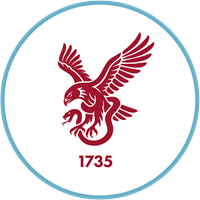At Lacon Childe we believe that a strong PSHE education is important to help our pupils develop into well-rounded members of society, who can make a positive contribution to their community.
PSHE is taught in three strands at Lacon Childe, as recommended by the PSHE Association:
- Health And Wellbeing
- Living In the Wider World
- Relationships
Our curriculum time is one hour a week in Key Stage Three and one hour a fortnight in Key Stage Four. It is taught by form tutors. Each lesson the pupils are reminded of the classroom rules around discussing sensitive and personal material. We ensure the curriculum is broad and balanced by including a variety of activities and stimulus to engage the children. Our curriculum is age-appropriate, using carefully chosen vocabulary to match the language used in our feeder schools. We use a variety of resources from credible non-political organisations.
At key stage 3, students build on the knowledge and understanding, skills, attributes and values they have acquired and developed during the primary phase. PSHE education acknowledges and addresses the changes that young people experience, beginning with transition to secondary school, the challenges of adolescence and their increasing independence. It teaches the knowledge and skills which will equip them for the opportunities and challenges of life. Students learn to manage diverse relationships, their online lives, and the increasing influence of peers and the media.
At key stage 4, students deepen knowledge and understanding, extend and rehearse skills, and further explore attitudes, values and attributes acquired during key stage 3. PSHE education reflects the fact that students are moving towards an independent role in adult life, taking on greater responsibility for themselves and others.
Implementation
At Key Stage 3, PSHE is studied one lesson per week and in Key Stage 4, PSHE is studied one lesson per fortnight. The course following the statutory guidance for PSHE using the PSHE Association materials. There are three areas of learning in PSHE: Health and Wellbeing, Living in the Wider World and Relationships.
learning in PSHE: Health and Wellbeing, Living in the Wider World and Relationships.
PSHE follows a spiral programme that introduces new and more challenging learning while building on what has gone before, which reflects and meets the personal developmental needs of the pupils. Opportunities are provided to make real decisions about their lives, to take part in activities in a supportive environment where children can draw on their personal experiences, express their views and opinions and put what they have learned into practice in their own lives.
Sex and Relationship Education
SRE is taught as part of PSHE and Science. The PSHE lessons and resources (PSHE Association) have been created in line with statutory and non-statutory curriculum guidance including:
- The DfE Statutory RSE and Health Education Guidance
- The National Curriculum for Science
- The PSHE Association Programme of Study for KS1-5
These lessons are mapped to the DfE statutory RSE content and to the PSHE Association Programme of Study.
Supporting pupils with SEND
PSHE plays an important role for learners with SEND — rehearsing and embedding the practical skills and understanding they need to lead independent and fulfilling lives and enjoy safe and healthy relationships. The PSHE Association materials provides adapted documentation to support staff ensuring that PSHE lessons provide an inclusive environment where learners have the opportunity to explore and reflect upon issues that affect them and can develop strategies and skills to manage different real-life situations. For more information, visit the PSHE association website below:
PSHE education for pupils with SEND (pshe-association.org.uk)
As a part of your child’s education at Lacon Childe School, we promote personal wellbeing and development through a comprehensive PSHE education programme. Our PSHE education is the curriculum subject that gives students the knowledge, understanding, attitudes, and practical skills to live safe, healthy, productive lives, and meet their full potential. The PSHE curriculum is based on statutory requirements laid out by the Government which include content on Relationships and Sex Education (RSE). We are also mindful in the development of our curriculum that we need to react to the needs of our students and therefore we adapt the curriculum to focus on the needs of the cohort and the school community, continually monitoring and reviewing what is taught.
PSHE is taught throughout the school in every year group and is monitored and reviewed regularly. All teaching takes place in a safe learning environment and is underpinned by our school ethos and values. All topics are taught in an age appropriate and sensitive manner with the students learning how to accept the views of others and listen to each other appropriately. It is important to outline that in 2020 statutory changes were made to the requirements for Relationships and Sex Education, as well as the Health Education curriculum. Under Government guidelines, parents/carers are not able to withdraw their child from any aspect of relationships or health education. Parents/carers, however, are able to withdraw students from any or all aspects of sex education, other than those which are part of the statutory science curriculum and from Religious Education (RE). If you wish to withdraw your child from an aspect of the PSHE curriculum, please email [email protected]. You will be invited to have a discussion with our Curriculum Deputy and PSHE Lead as per Government guidelines.

